
ABOUT ICC
2023
The Intelligent Cities Challenge (ICC) is a European Commission initiative supporting European cities towards the green and digital transition of their local economies through Local Green Deals (LGDs).
Local Green Deals have the aim to align and integrate cities’ sustainability goals and strategies with the European Green Deal – encompassing eight thematic areas, with the net zero transition at its heart – and accelerate a movement from commitment to action.
LGDs start from existing city strategies and achieve to boost the intervention and the collaboration with stakeholders at local level to reach the city’s green transition and sustainability ambitions.
ICC involves three types of members: Core cities, which are the main beneficiaries of the ICC programme; Mentor cities, Cities from the EU and beyond with a proven track record who mentor, support and drive action in core cities; Facilitators/Experts, Experts and coordinators who provide targeted advice and coaching and ensure the programme meets the cities’ needs.
ICC focuses mainly on five thematic sectors:
ICC project is structured in three phases:

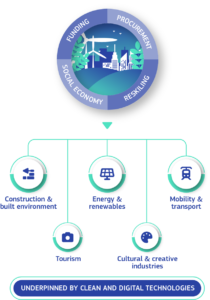
THE CONSORTIUM
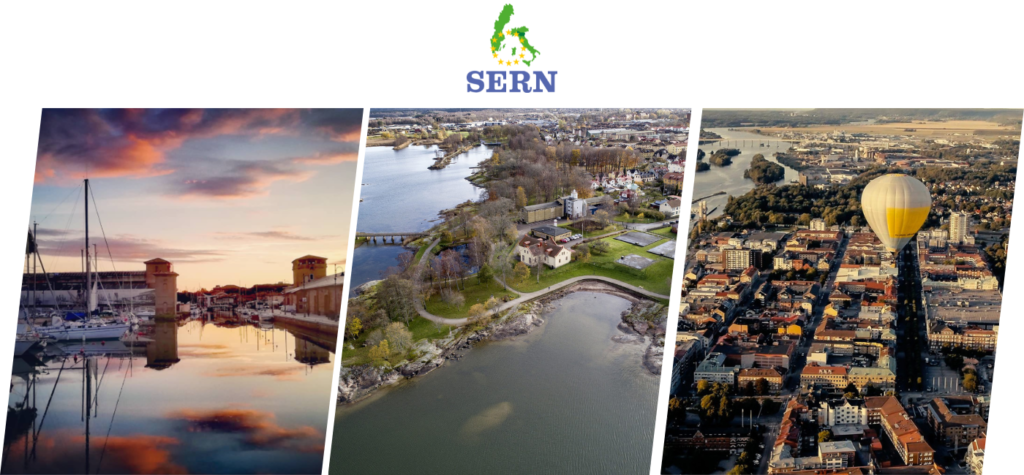
Swedish and Italian municipalities have joined forces through the Sweden Emilia Romagna Network to participate in the ICC as a consortium for the second time.
SERN fully embraces collaboration and peer learning and since January 2023, it has been promoting the Local Green Deal (LGD) to effectively work with local stakeholders and achieve common sustainability goals, using transnational collaboration for innovative implementation of LGD activities. The ICC will further enrich and develop their bilateral efforts.
The participating municipalities – Cervia, Vänersborg, and Trollhättan – share priorities and have agreed to work on a similar LGD structure and process. Cervia, situated along Italy’s eastern coast in Emilia Romagna, values the preservation of its natural landscape and resources. With around 28,700 residents, the city actively engages in local and European initiatives to promote social, environmental, and cultural growth while striving to become a smart city with low-polluting emissions.
Vänersborg, located in Västra Götaland County, Sweden, with a population of nearly 40,000, serves as the County’s seat of the regional parliament. It has a rich history in handicraft, shipping, and trade and offers various attractions and activities due to its location near Lake Vänern.
Trollhättan, also in Västra Götaland County, houses over 59,000 inhabitants and is known for its heavy industries, hydropower, professional services, and intellectual property creation.
The collaboration within the SERN consortium and their participation in the ICC demonstrate their commitment to sustainability and innovative solutions for the benefit of their communities. Through joint efforts and shared goals, these municipalities aim to create a greener, more prosperous future for their communities while fostering valuable transnational partnerships.
THEMATIC SECTOR: ENERGY AND RENEWABLES
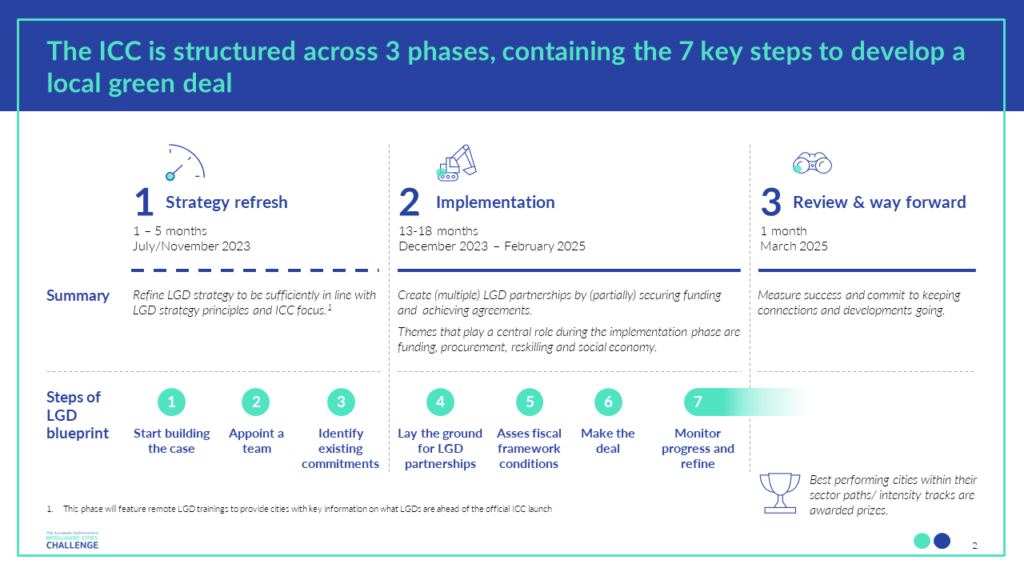
The three municipalities of the consortium have completed the first phase of the process, and are focusing both locally and in their transnational collaboration on two strategic objectives that they share:
1.To increase the production of energy in the municipality from sustainable and renewable sources.
Transnationally, we are set to spark awareness about sustainable energy among SMEs, cultivating new collaborations for local sustainable energy production. 

2. To increase energy savings in the municipal territory by improving energy efficiency among private actors, in particular companies.
Transnationally, we are set to boost awareness about energy efficiency among SMEs, cultivating stronger collaborations for joint energy initiatives. 

𝗟𝗼𝗰𝗮𝗹 𝗚𝗿𝗲𝗲𝗻 𝗗𝗲𝗮𝗹𝘀 𝗳𝗿𝗼𝗺 𝗖𝗼𝗺𝗺𝗶𝘁𝗺𝗲𝗻𝘁 𝘁𝗼 𝗔𝗰𝘁𝗶𝗼𝗻: icc conference
porto, 18 - 19 June 2024
During the event, we focused on crucial themes related to completing and delivering Local Green Deals. It was a great opportunity to discuss key points with experts, unlocking and advancing our LGD partnerships. We also connected with other cities all over Europe to initiate joint initiatives and address common challenges. The Conference featured an ICC Mayors – Business Forum on Day 2, gathering political delegates and business representatives from ICC cities to discuss the development of impactful Local Green Deals and delivering on the twin transition agenda, as well as developing action plans and scoping key investments of cities towards a net-zero economic model.
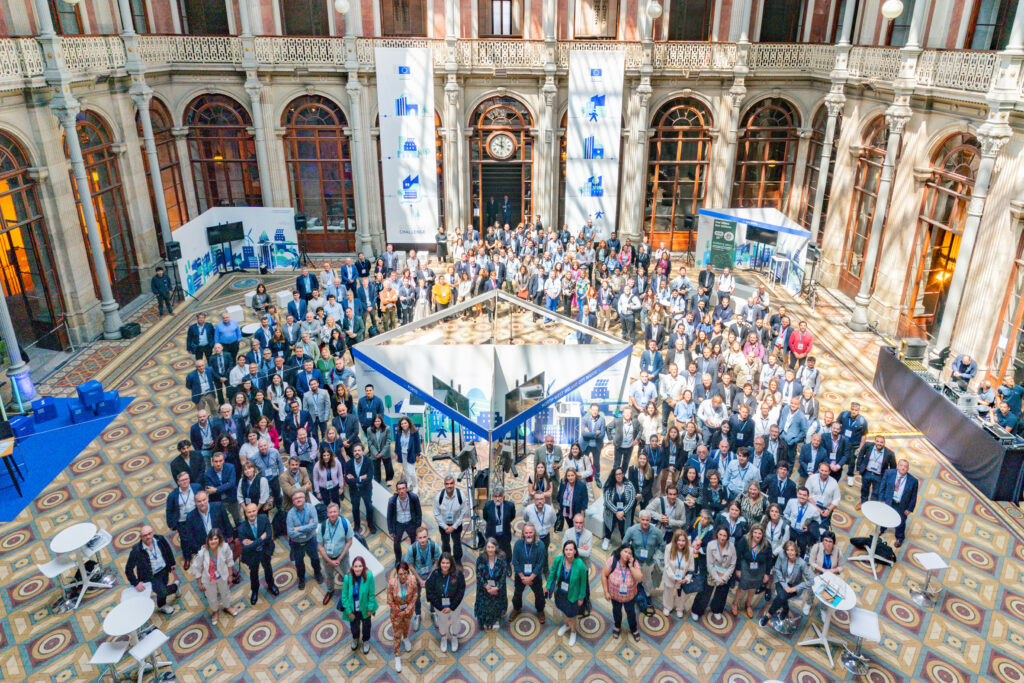
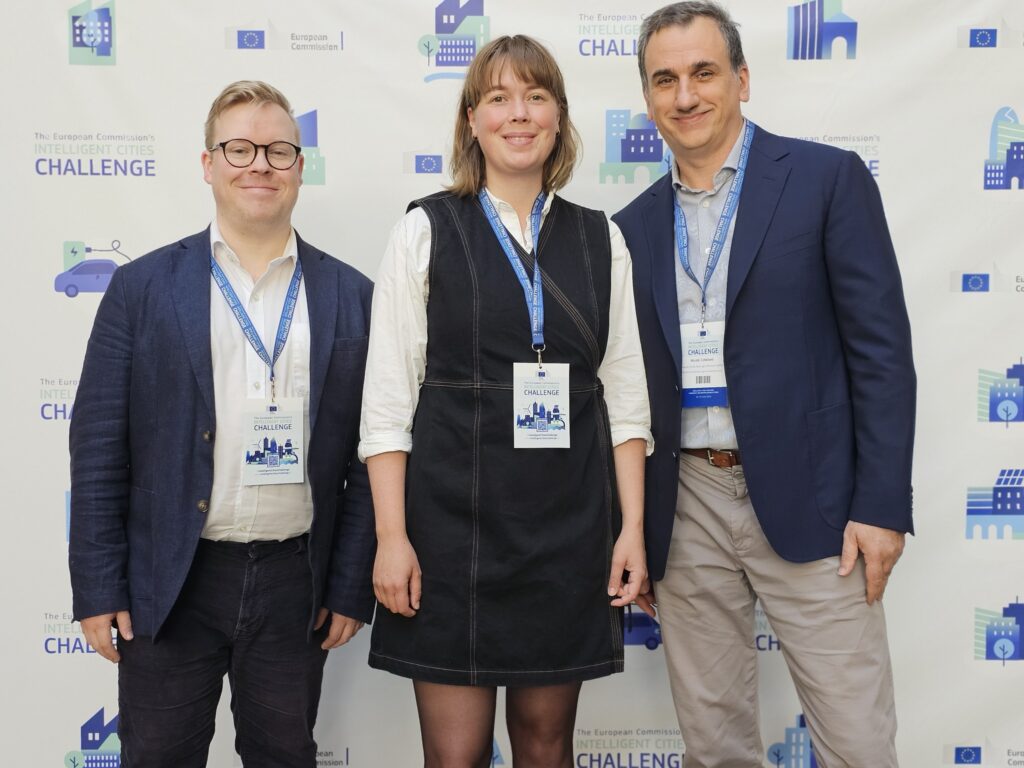
The objectives of the Intelligent Cities Challenge Conference on Local Green Deals were to:
ICC STRATEGY city LAB
Brussels, 23 - 24 November 2023
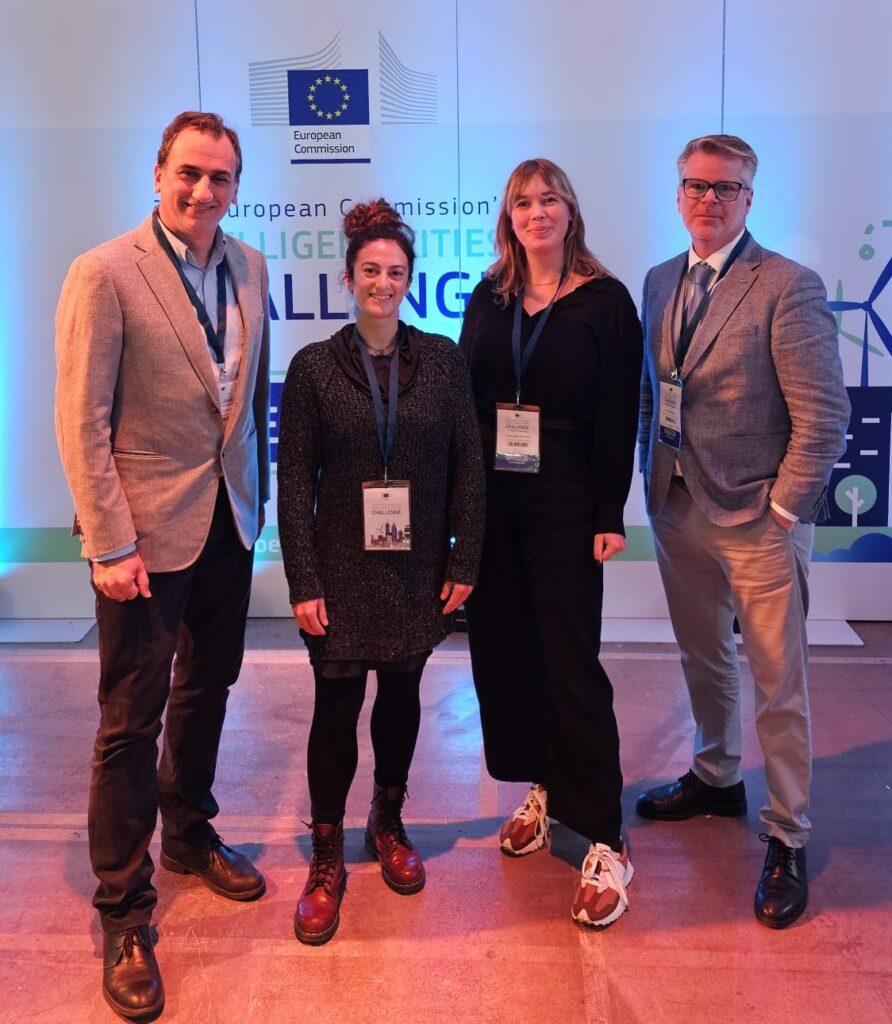
Signing of the Local Green Deals
Between late 2024 and mid-2025, the three municipalities of the SERN Consortium – Cervia, Vänersborg, and Trollhättan – officially signed their Local Green Deals (LGDs), the result of a two-year process combining strategic planning, stakeholder engagement, and transnational cooperation through the Intelligent Cities Challenge (ICC). Each agreement reflects the local priorities of the municipality while contributing to shared sustainability goals across the consortium.
In Cervia, the LGD was signed with Terme di Cervia, a historical thermal spa facility located within a protected natural area. The deal promotes deep decarbonisation of the tourism sector, with investments to reduce energy consumption by 50% and the installation of a 45kW photovoltaic system. The agreement also supports the city’s broader energy strategy through its Renewable Energy Community, formally established in October 2024. The initiative is seen as a pilot for future LGDs with other key businesses in the area.
In Vänersborg, the LGD was signed in May 2024 with three business associations – Företagarna Vänersborg, Brålanda företagarförening, and Trestad Center företagarförening – representing a wide range of local SMEs. The agreement focuses on boosting local knowledge and capacity on energy efficiency and renewable energy, encouraging uptake of municipal advisory services, and facilitating peer-learning among businesses. A series of thematic events and consultations were organised to sustain engagement and monitor impact, with the municipality taking the lead on coordination and outreach.
In Trollhättan, the LGD is closely linked to the local innovation project Fyrbodal för framtidens flex, funded with 6 million SEK by the Swedish Energy Agency. Signed in late 2024, the agreement brings together the city administration, Innovatum Science Park, and local business associations (Företagarna Trollhättan, BID Stallbacka, and Skogstorpa) to improve energy flexibility in industrial zones. Key goals include reducing power peaks, improving grid efficiency, and promoting local renewable energy production. The LGD also provides for free energy and climate consultations and serves as a strategic link between municipal goals and industrial innovation.
Collectively, these Local Green Deals exemplify how structured collaboration between public authorities and private stakeholders can lead to actionable, locally grounded solutions for climate neutrality. As the ICC journey concludes, the SERN Consortium remains committed to sharing these experiences and scaling up the LGD approach across its broader network.



Final ICC Conference and Special Mention in Brussels
Brussels, 5 - 6 march 2025
On 5–6 March 2025, the SERN Consortium participated in the Final Conference of the Intelligent Cities Challenge, held at the Maison de la Poste in Brussels. The event brought together over 250 representatives from cities, businesses, EU institutions, and expert organisations to reflect on the results of the 2022–2025 ICC edition and explore the future of Local Green Deals in Europe.
During the conference, SERN was awarded a Special Mention by the European Commission for the work carried out within its transnational consortium. The recognition highlights the strong collaboration between Comune di Cervia 


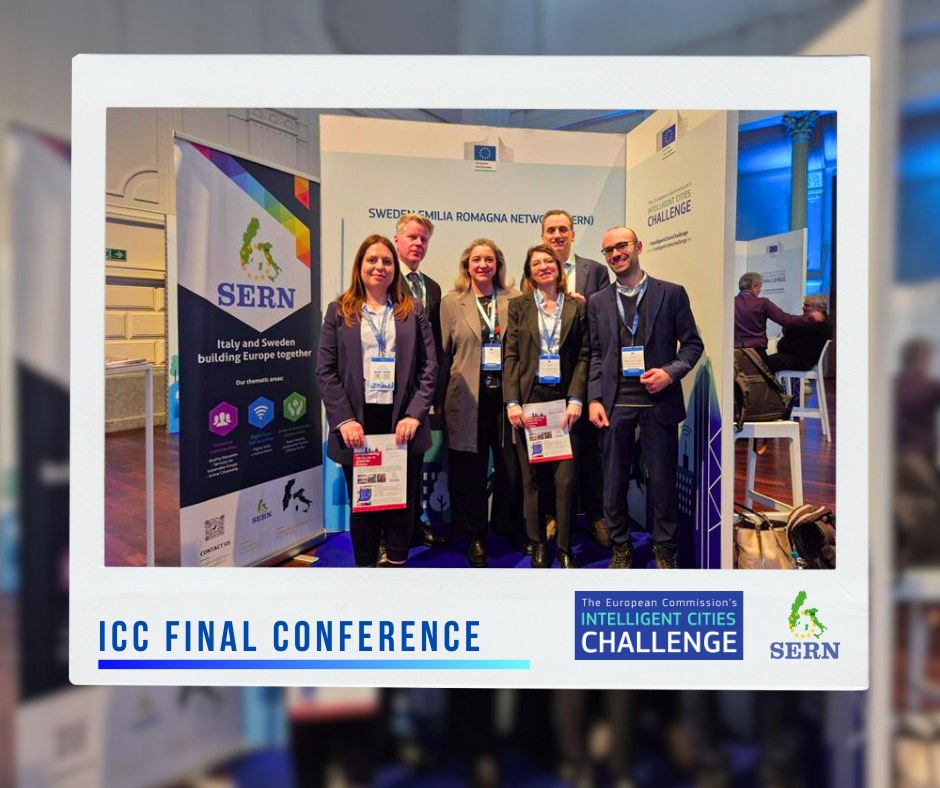
The consortium was represented in Brussels by Nicola Catellani and Alessia Mereu (SERN), Angelica Lundgren Bielinski (Trollhättans Stad), Simona Melchiorri and Mirko Boschetti (Comune di Cervia), and Lars Svensson (Företagarna Trollhättan). The delegation contributed to both the main conference and the Mayors – Business Forum, which facilitated exchanges between political leaders and private sector representatives on the role of Local Green and Industrial Deals in strengthening Europe’s cleantech transition.
This recognition confirms the value of cross-border cooperation and demonstrates how local action, when supported by European collaboration, can generate real impact on the path toward climate neutrality.

Our objective is to increase cooperation among the
members of the network, between Italy and Sweden
and, more in general, the North and South of
the European Union.
Stradone Martiri della Libertà, 15 – 43123 Parma (PR) – Italy | C.F.: 91251370374
Tel: +393483892600 – Website: www.sern.eu – Email: secretariat@sern.eu – PEC: secretariat@pec.sern.eu
© 2024 | All rights reserved | Privacy Policy | Cookie Policy